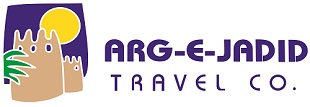
Due in part to its dryness and relative isolation, your chances of getting seriously ill with a virus or other infectious disease in Iran are fairly small.
The most common reason for travelers needing medical help is as a result of accidents. If you are unfortunate enough to need a hospital, Iran is home to some of the best in the Middle East. Many doctors have been trained in Europe or North America and, especially in the larger cities, you shouldn’t have too much trouble finding one who speaks English. In remoter areas, medical facilities are more basic.
There are few, if any, reciprocal medical arrangements between Iran and other countries so be prepared to pay for all your medical and dental treatment. The quality of hospitals varies from place to place, but in Tehran, Esfahan and Shiraz, in particular, you’ll find international-standard hospitals and well-trained doctors. Wherever you are, locals will direct you to the nearest and/or most appropriate treatment center.
Tap water is safe to drink in most of Iran, though many travelers like to use bottled water, which is widely available.
Insurance
Find out in advance if your insurance plan will make payments directly to providers or reimburse you later for overseas health costs, because banking sanctions mean it will be very difficult for insurers to pay doctors direct in Iran. Your insurance company might be able to locate the nearest source of medical help, but it’s faster to ask your hotel or, in an emergency, call your embassy or consulate, call the emergency medical service on number 115, or inform your tour guide if your trip is already organized by an Iranian tour operator.